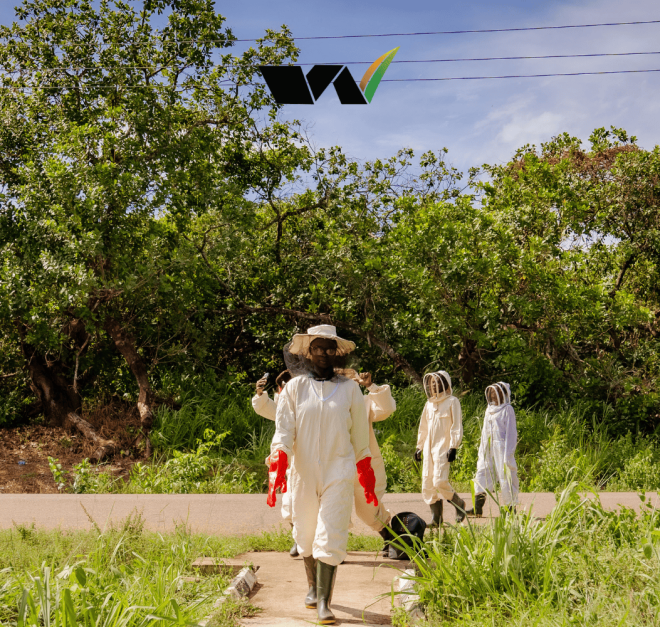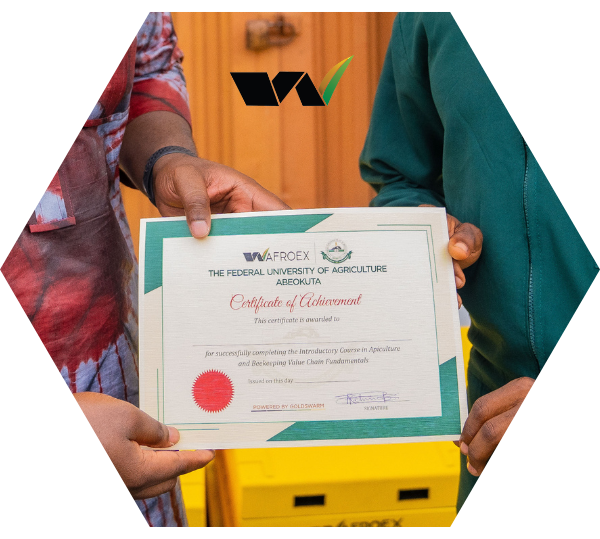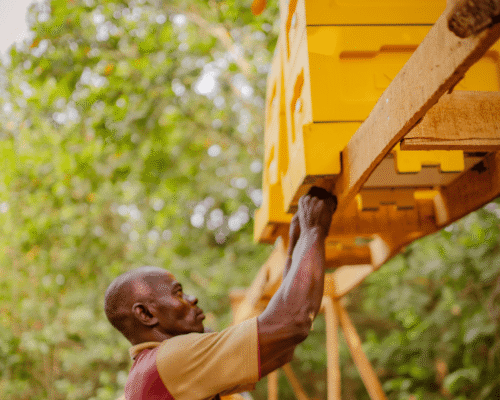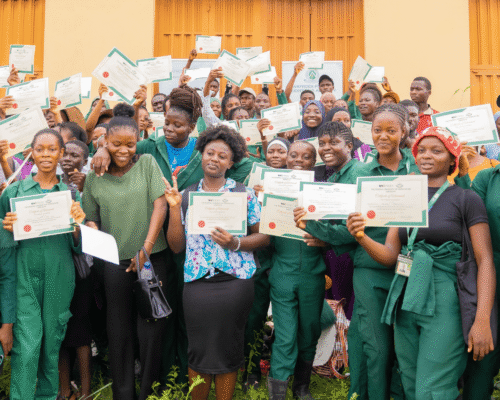



Education
Hands-On Training for a Brighter Farming Future
At WAFROEX, we believe strong communities are the foundation of sustainable trade. That’s why we invest in hands-on training programs for local farmers, beekeepers, and growers across West Africa.
Our workshops cover essential skills such as modern beekeeping, sustainable crop handling, hygiene, worker safety, yield improvement, and proper storage techniques. By sharing knowledge and providing access to tools and resources, we empower communities to improve the quality and quantity of their harvests — whether it’s honey, hibiscus, cashew, or groundnut.
Beyond training, we focus on building long-term resilience. Farmers gain certificates, mentorship, and access to export opportunities, ensuring their work is not only productive but globally competitive. This approach uplifts local economies, preserves traditional knowledge, and creates a lasting impact across generations.
🌍 Our Commitment: Empowering rural communities today, to build a sustainable export future for tomorrow.
PARTNERSHIPS
A Mission To Advance systainable practices
We collaborate with local beekeepers & farmers, agricultural institutions, universities like FUNAAB, and government bodies to improve honey production practices across Nigeria. Our support includes modern equipment, technical training, cold extraction techniques, and periodic inspections.


We also provide market access and buyback guarantees, helping our partners scale their operations confidently and ethically. These partnerships are built on trust, long-term value, and a shared commitment to responsible growth.
45
85
12
23
Grow Your Career at WAFROEX
Work With Purpose
In The News
Community Impact






Enviromental Impact
At WAFROEX, sustainability begins with the people and places we serve.
We work hand-in-hand with beekeepers, farming families, universities like FUNAAB, and rural communities to build an environmentally responsible future — one hive at a time. From introducing cold extraction techniques that protect bee health to providing tools that minimize ecological disruption, our mission is to improve honey production without harming nature.
In every village we support, we see an opportunity — not just to produce better honey, but to educate the next generation about conservation, pollination, and sustainable farming. Whether it’s installing hives near schools, hosting workshops for young students, or investing in green practices, our partnerships are rooted in environmental awareness, community upliftment, and long-term ecological balance.